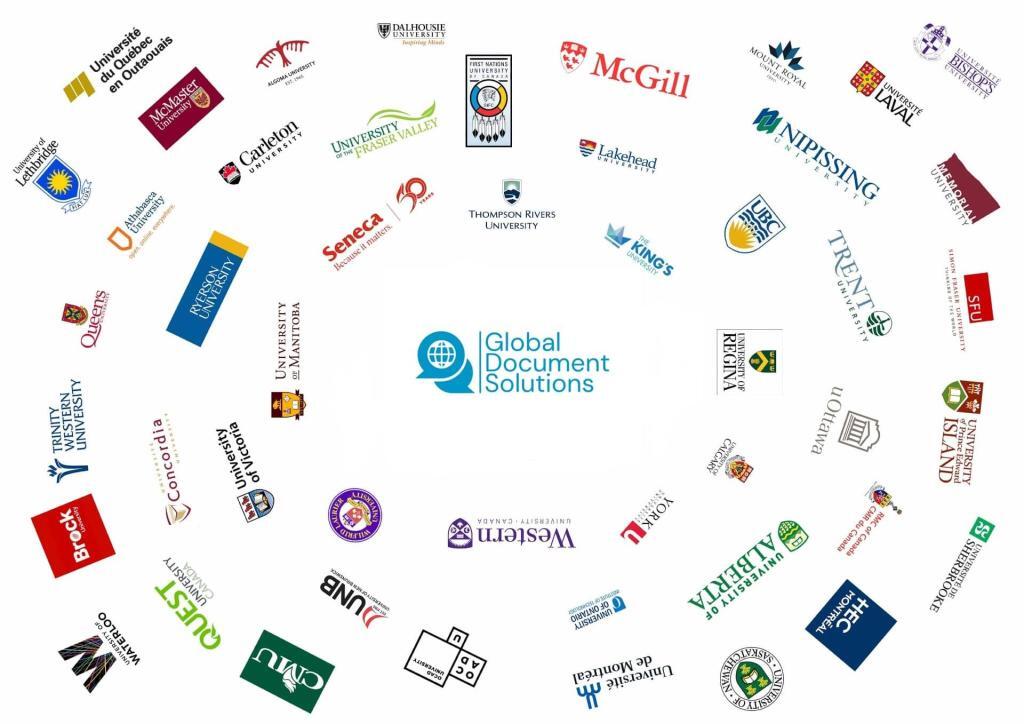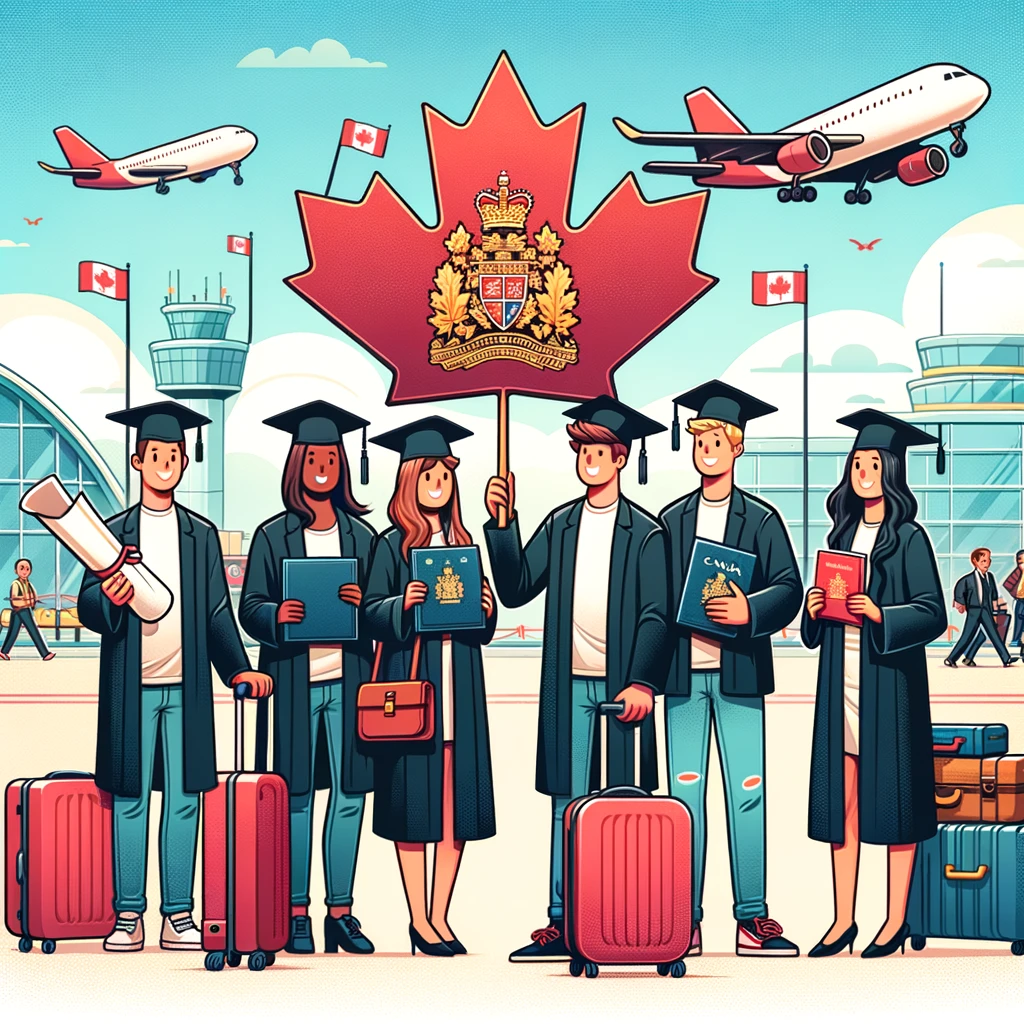Canadian University Degree Apostille
If you're planning to work or study in another country, you need to make sure that your Canadian education documents are recognized in that country. This is where the process of apostille or authentication and legalization comes in. The validation process of Canadian apostille or authentication and legalization may also be called Attestation in some countries.
Why You May Need It
If you possess a Canadian degree, diploma, or transcripts and are planning to use them abroad, you may need to get them apostilled or authenticated and legalized. This process ensures that your educational documents are officially recognized and accepted in another country. Here's why this might be necessary:
- International Employment or Education: If you're seeking a job or planning to study in a country outside of Canada, employers or educational institutions often require proof of your academic achievements. An apostilled or authenticated document assures them that your qualifications are legitimate and meet their standards.
- Immigration Purposes: For those immigrating to a new country, educational credentials often play a crucial role in the application process. Many countries require these documents to be apostilled or authenticated and legalized to confirm their authenticity.
- Professional Licensing: If your profession requires a license or certification in another country, your Canadian degree or diploma will likely need to be authenticated. This is common for doctors, nurses, engineers, and other regulated professions.
- Business Ventures: Engaging in business activities abroad may require you to present authenticated educational documents, especially if they're relevant to your business sector or if you're seeking a particular role or partnership.
- Legal Processes: In some cases, legal proceedings in foreign countries (such as court cases or estate settlements) may require you to present authenticated academic documents.
- Cultural Recognition: Some countries place a high value on formal education credentials, so having your Canadian degree, diploma, or transcripts properly authenticated can enhance your professional and social standing.

Apostille for a Canadian Degree or Transcripts
Canada's accession to the Hague Apostille Convention on January 11, 2024, marks a significant change in document authentication and legalization for Canadians. Before this, Canadians needed to go through a more complex process of document verification, which often involved multiple steps including authentication by the Canadian Ministry of Foreign Affairs and then legalization by the consulate of the destination country. This process was not only time-consuming but also costly.
With the adoption of the Hague Apostille Convention, the process for authenticating Canadian degrees, diplomas, and transcripts for use in member countries has been greatly simplified. An Apostille certificate issued in Canada will now be recognized in all other member countries of the convention. This is particularly beneficial for individuals planning to study or work abroad, as their educational documents can be easily and quickly authenticated.
How do I get an Apostille for a Canadian University Degree?
To obtain an Apostille for a Canadian degree, diploma, or transcript, one must submit the original or a notarized copy of the document to a designated competent authority in Canada. This authority is responsible for issuing the Apostille certificate, which confirms the authenticity of the document’s signature, the capacity in which the person signing the document acted, and the identity of any seal or stamp on the document.
This new process is not only faster but also more streamlined, eliminating the need for Canadian documents to be authenticated by the embassy or consulate of the destination country. It's a major boon for international students and professionals from Canada, simplifying their preparations for overseas education or employment.
However, it's important to note that the Apostille only verifies the authenticity of the signature, the capacity of the signer, and the seal or stamp on the document. It does not validate the content of the document. Therefore, individuals must ensure that their educational credentials meet the requirements of the institution or employer in the destination country.
Degree Authentication and Legalization for Non-Apostille Countries
1
Step 1: Authentication
The first step in the process is authentication. To have your Canadian university or college degree or diploma authenticated, it must be signed and have an embossed seal from the institution. You can either get the original document authenticated, or a notarized copy made by a Canadian Notary Public. This also applies to Canadian university or college transcripts or letters of enrollment.
If you need help, we offer notary services that can make a notarized copy of your degree to save stamps and signatures on the original.
Step 2: Legalization
The second step is legalization at the embassy or consulate of the country you're going to. This step involves paying a fee and meeting additional requirements, such as providing official transcripts signed by the university or college registrar's office.
The legalization process can be complicated, but our degree legalization services will take care of everything and make sure that your degree is legalized correctly and on time. We can return your authenticated and legalized degree to you or anywhere in the world you need it to go, using one of our document shipping solutions or your preferred delivery method.
How Does Using Global Document Solutions Services Benefit You?
Utilizing a professional service for the apostille or authentication of Canadian degrees, diplomas, and academic transcripts provides significant benefits. Our professionals are well-versed in the specific requirements and complexities of Canadian educational documents, ensuring that your documents meet all legal standards. This expertise reduces the risk of errors and delays, which is vital for those dealing with time-sensitive situations. Attempting to handle these tasks without professional help increases the likelihood of mistakes, such as improper documentation or overlooking crucial steps, leading to extended processing times or even outright rejection. In the realm of official academic documentation, precision and strict adherence to established protocols are essential. Professional services offer the expertise and reassurance needed to ensure these aspects are meticulously handled. Contact one of our experts today for assistance with your Canadian degree, diploma, or academic transcripts!


